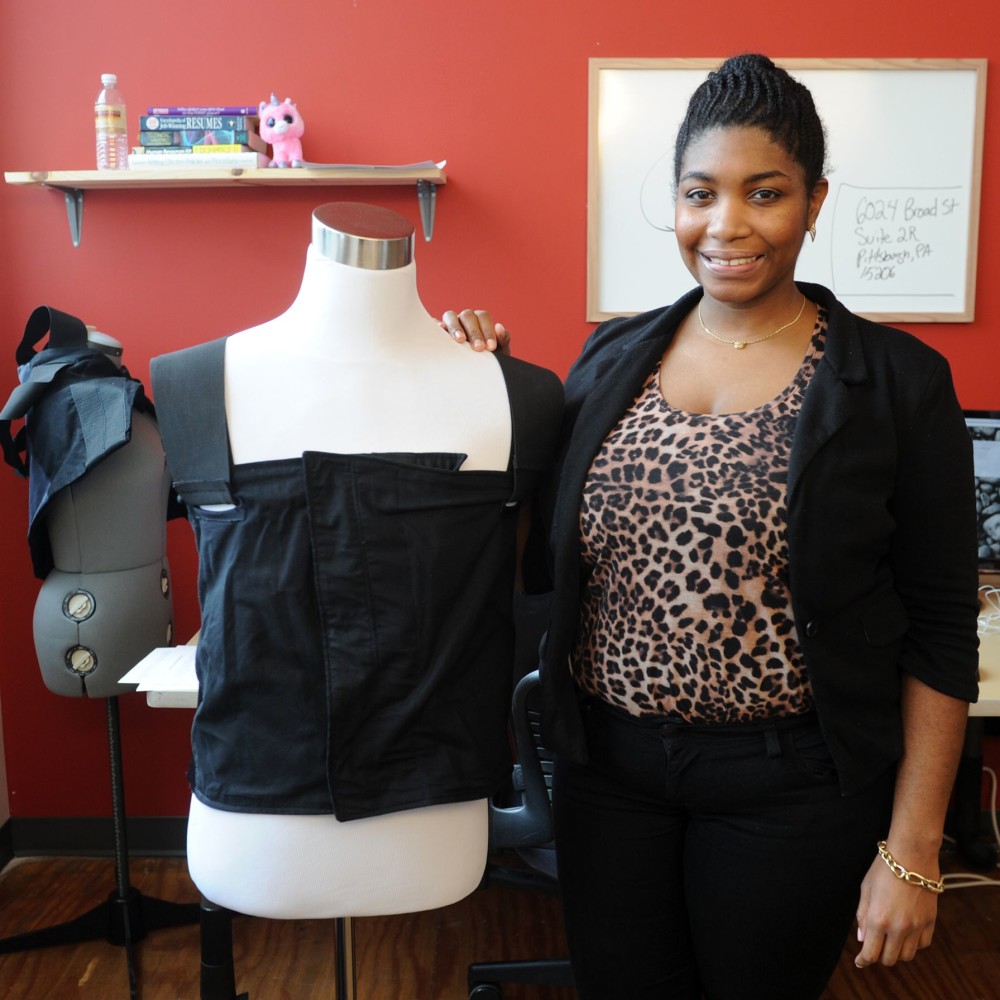By Deborah M. Todd
Pittsburgh Post-Gazette.
When Courtney Williamson dove headfirst into the medical device industry last year, she had experience in neither the medical field nor engineering.
But when the time came to pitch her idea for an assistive brace for Parkinson’s disease patients to a class of Carnegie Mellon University engineering students, what Ms. Williamson had in life experience was more than enough to attract a team willing to turn her vision into a business.
“[Building the business] was definitely very exciting, something new I had never done before. On the other hand, it was something I had done all my life, which was thinking about how to be a caregiver for a Parkinson’s patient,” Ms. Williamson said.
“My mother has had Parkinson’s for 25 years — this is the longest thing I’ve ever done.
buy levaquin generic buy levaquin online no prescription
So I really had an expertise in terms of what would work and what wouldn’t work.”
Sitting in a conference room space at East Liberty-based hardware accelerator AlphaLab Gear, the current headquarters for medical brace company AbiliLife, 27-year-old Ms. Williamson said making the leap from her educational background toward a decadeslong passion for caregiving was less daunting than one might expect.
After earning a bachelor’s in psychology from Spelman University in 2009, Ms. Williamson came to CMU in pursuit of a Ph.D. in organizational behavior and therapy, all the while with plans for a Parkinson’s assistive brace in her back pocket.
Once she hit CMU’s campus — an environment with an engineering school ranked 16th in the world by U.K.-based research firm Times Higher Education and early-stage small business support program Project Olympus that added the Center for Innovation and Commercialization to get student products to mainstream markets in 2012 — the realization that she didn’t need to be a biomechanical engineer to build her product became more apparent with each connection made.
Networking made during Ms. Williamson’s pitch to biomedical engineering students led to the six-person team of interns that helped to create her first prototype and is now tweaking the latest versions of AbiliLife products. While she may not have known industry jargon or the math that students would ultimately use to create her first brace, she knew exactly what she was hoping to remedy.
“Part of Parkinson’s makeup is that [patients] have really poor balance and posture and they’re not sure where their bodies are in space. As a result there are a lot of issues with balance, and that deteriorates over time. I wanted something to help her with that and I couldn’t find anything.”
One year and several prototypes later, the AbiliLife Calibrace, a posture correcting back and shoulder brace that Ms. Williamson said “moves the center of balance from behind the body to underneath the feet” is being marketed through local Parkinson’s support groups and online. Ms. Williamson also has connected with several Parkinson’s patients, caregivers, neurologists and physical therapists for product planning purposes.
In addition to being accepted to AlphaLab Gear, which provides either a $50,000 investment for 9 percent equity or a $25,000 investment for 5 percent equity through its state-supported parent organization Innovation Works, AbiliLife recently won a $3,000 second place prize in a pitch competition sponsored by Squirrel Hill-based entrepreneurs organization The Indus Entrepreneurs of Pittsburgh. The company is also part of the National Science Foundation’s I-Corps Site Program for entrepreneurs at CMU.
Kit Needham, associate director and entrepreneur in residence at CMU’s Project Olympus, said Ms. Williamson’s ability to clearly communicate her intentions for the products reinforced her position as a leader, making her stand out in a sea of other talented millennials.
“[Ms. Williamson] learned early on how to communicate,” said Ms. Needham. “She was one of a number of pitches and it could have been that she wasn’t an effective communicator or good story teller and the students would have picked someone else. There is an art to it.”
As Ms. Williamson and her team enter the next phase of growth, she said she’ll use the same passion and firsthand expertise that drew engineering students on her side to draw potential investors.
“The world is comprised of a lot of different people with a lot of different skills and we don’t all have to have the same skill set, which is a good thing,” she said.
“I don’t think [the students were] worried about my lack of expertise in engineering, but they saw a real-world problem and they saw a way to make an impact, and I think that’s what drove them.”














































































































































































































































































































































































